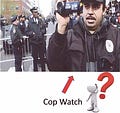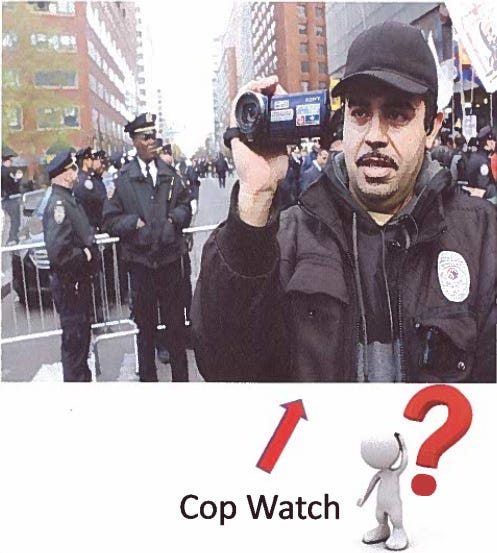NYPD Legal Bulletin Right to Record Police
How to exercise your First Amendment right to film the police, or, How the police can abridge your First Amendment right to film them
This is day five of the NYPD Docs Clearinghouse week. Check out the previous days: OC Spray; Use of Force Reporting Guide; Coronavirus Policies; and Faulty Protest Data. Check back tomorrow for a weekend bonus round.
The Document:
The First Amendment of the Constitution guarantees your right to record – and criticize – police. This has been held up by the Supreme Court repeatedly. But like all good Constitutional amendments, the police have loopholes.
Some of these exceptions make sense, such as, you can not assault a police officer while filming them, or intentionally put your lens in their face to obstruct them. Others are more dubious. Today see the 2016 NYPD Legal Bureau Bulletin “Rights of Observers to Record Police Officers” to learn the nuances of how you can record the police safely – and how that right can be taken away.
The general rule of thumb is, keep your distance, and do not block police actions in any way. You may insult the police while you record, even “using crude or vulgar speech.” But if you violate an officer’s “zone of safety,” usually at least a full arm’s length distance, and you do not heed their warnings to “Please step back!”, you may be subject to arrest for Obstructing Government Administration, or OGA. Physically touching an officer at all is prohibited, as well as physically blocking their path, even passively.
Your right to record may also be abridged if your actions can be construed as witness tampering, or if your verbal engagement with the police is excessive and leads to interference by distraction. Also, there is no right to record whatsoever on police property, such as in precinct houses. But recording on private property in general is allowed, so long as the observer is not trespassing.
Police officers may not “threaten, intimidate, or otherwise discourage an observer” from recording if the observer is not violating any of the stated prohibitions. They also may not block the camera “when there is no legitimate law enforcement reason to do so.” And they may not delete or order an observer to delete any recordings.
But, crucially, there is one glaring loophole that theoretically allows an officer to confiscate practically any camera at any protest or riot. That is, an officer may confiscate a recording device with a supervisor’s authorization “When a police officer has probable cause to believe that a recording contains evidence of a crime.” By virtue that the NYPD and the government considers basic protest activity criminal (such as walking in the street) this categorization can apply practically to any observer of any non-permitted protest.
When a police officer wants to exercise that privilege, first they will ask you to provide the recording voluntarily. If you comply, it must pass legal muster in court that the consent was not coerced. If you refuse, then the officer may notify you that a warrant will be obtained to seize the recording. You’ll be warned not to delete any recording before the warrant arrives or else be subject to arrest for evidence tampering. If an officer believes you may delete the footage, they may preemptively seize the recording, but they may not view the recording until the warrant is secured.
Absent this probable cause, “Under no circumstances should a Member of the Service seize a recording device merely because it has captured a law enforcement encounter.” Also, an officer may not delete any recording whatsoever – and to do so would subject them to the same evidence tampering laws the observer is bound to.
Of course, these directives were violated repeatedly last summer during the civil unrest. Journalists were assaulted and arrested, and camera equipment was destroyed. The abuses led to a political backlash that cost the NYPD its authority to issue press credentials. The City Council passed a law in March shifting that authority to the Mayor’s Office of Media and Entertainment, the law taking effect some time next year.
But the law fails to take into account that mayors are often more politically shameless than their police departments. But this mayor will never have the pleasure, as his failed governance will come to a close at the end of this year. The new responsibility will fall upon the next mayor, who at this moment it seems most likely that he will be an ex-NYPD captain.
Stay tuned tomorrow for a special WEEKEND BONUS round of the NYPD Docs Clearinghouse.
Image: Jose LaSalle of Cop Watch. From the Strategic Response Group Field Force Training Modules.


